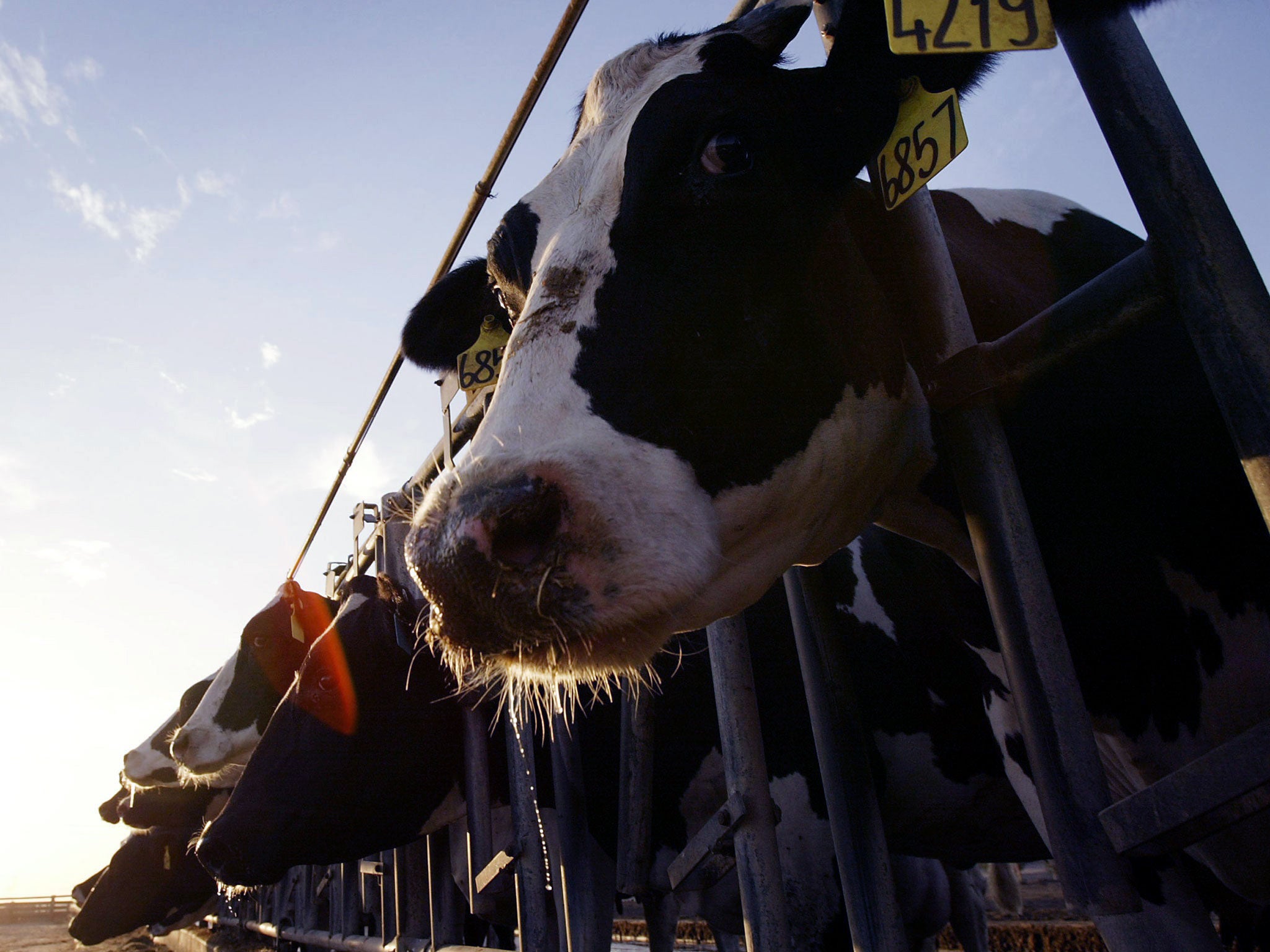Would a free-trade deal with Australia put UK farmers out of business?
We’re told that an Australia-UK free-trade deal would have destructive consequences for British agriculture – and failing to sign a deal would make Brexit pointless. But are such claims true? Ben Chu investigates


The Whitehall battle over the putative UK free-trade deal with Australia has focused on the impact on Britain’s farmers.
The farming unions, with the apparent backing of the Environment Department, have been lobbying against the deal, arguing that it would result in unfair competition for UK food producers. Minette Batters of the National Farmer Union argues lifting import tariffs would “make life unbearable for small British family farms”.
Scottish National Party politicians have also warned that the deal could devastate the business of Scottish crofters.
However, the prospect of a trade deal with Australia not being done has also provoked anguish. The former MEP and Brexit champion Daniel Hannan suggested at the weekend that it would make leaving the single market and customs union pointless.
“That pretty much says the UK is not doing anything with global Britain,” he has argued.
As ministers struggle behind the scenes, it’s worth asking whether either of these two arguments are true. Would an Australia-UK free trade deal really have such destructive consequences for UK agriculture? And would a failure to sign this agreement destroy the dream of a post-Brexit “global Britain”?
In terms of the impact on UK farmers we can start with the official analysis by the government’s own trade economists. Their work suggests that a US-Australia free-trade deal would provide a very modest small boost to overall UK GDP over the long term, perhaps 0.01 to 0.02 per cent of GDP.
Yet when it broke down the impact of a free-trade deal by industrial sector, the modelling showed a negative impact on Britain’s farmers. This stems from the fact that, according to the assumptions fed into the model, the Australian farming sector is more efficient than the UK’s, likely reflecting the country’s land and weather advantages when it comes to maximising agricultural production at a lower cost.
“Australia has a strong comparative advantage in its exports of livestock meat, dairy products, wheat, swine, poultry and other live animals compared to the UK,” the report says.
So the natural consequence of scrapping the existing 20 per cent tariffs on imports of lower-price Australian beef and other produce would seem to be that UK producers lose domestic market share and the output of the sector declines, presumably leading to job losses.
The most negative regional impact that emerges from the official modelling is projected to be in Northern Ireland because of its rural economy (although it’s likely the Northern Ireland Protocol would prevent tariff-free Australian beef imports entering the province via Great Britain).
Given these findings it is no surprise that the farming lobby is resisting the deal.
However, some trade analysts are sceptical that a free-trade deal would have such a devastating impact on UK farmers. Sam Lowe of the Centre for European Reform has pointed out that importers might not necessarily pass on their tariff savings to consumers and that Australian producers might seek to sell their higher-end produce to the UK rather than seeking to grab UK market share.
The suggestion from Whitehall is also that agricultural tariffs will be phased out over a 10- to 15-year period, reducing any shock for British agriculture.
“Almost everything you hear about trade’s impacts on farmer livelihoods is hyperbolic or abstract,” says Dmitry Grozoubinski, a former Australian trade negotiator now at ExplainTrade.
“It is really complicated to calculate how much increased competition tariff elimination would actually mean for a Welsh lamb farmer or Scottish beef farmer.”
However, some economists are much more confident that reducing tariff barriers would have a dramatic impact on UK food prices (and presumably a negative impact on UK farmers who would lose market share).
“The strongest argument for Brexit is affordable food. Time to ditch the latter-day corn laws and stop protecting farmers,” says the former permanent secretary at the Treasury, Lord Macpherson.
Regardless of the impact of this particular deal on farmers, both sides seem to regard an Australian trade deal as important because it indicates a direction of travel for the UK on trade deals. The farming lobby fears that if the UK opens itself up to Australian agricultural imports in this first post-Brexit trade deal there will be pressure for the UK to accept the same in a future UK-New Zealand or UK-US trade deal.
Mr Grozoubinski thinks this is probably well founded.
“A typical place trade negotiators start when planning what to push for in a trade negotiation is looking at what the other side has given someone else,” he says. “If they’ve done it for one partner, they’ll have a much harder time defending why they can’t do it for you.”
So would failing to do an Australian deal destroy the rationale for Brexit?
That, of course, depends on what the rationale was.
If it was reducing immigration, as it was for many Brexit supporters, then the answer is no. If it was to secure greater UK “sovereignty” (defined as exiting the EU treaty structures), another common motivation, then the answer is also no. But if the purpose of Brexit was signing new free-trade deals with Anglophone countries then the answer might well be yes.
However, if the purpose of leaving the EU was to boost the UK’s national prosperity, failing to conclude a deal with Australia is unlikely to make much difference.
This is because all the credible modelling shows that the overall economic gains from doing new post-Brexit free-trade deals were – regardless of the impact on agricultural imports and UK farming – never going to compensate for the losses from leaving the EU’s single market and customs union.
Join our commenting forum
Join thought-provoking conversations, follow other Independent readers and see their replies
Comments